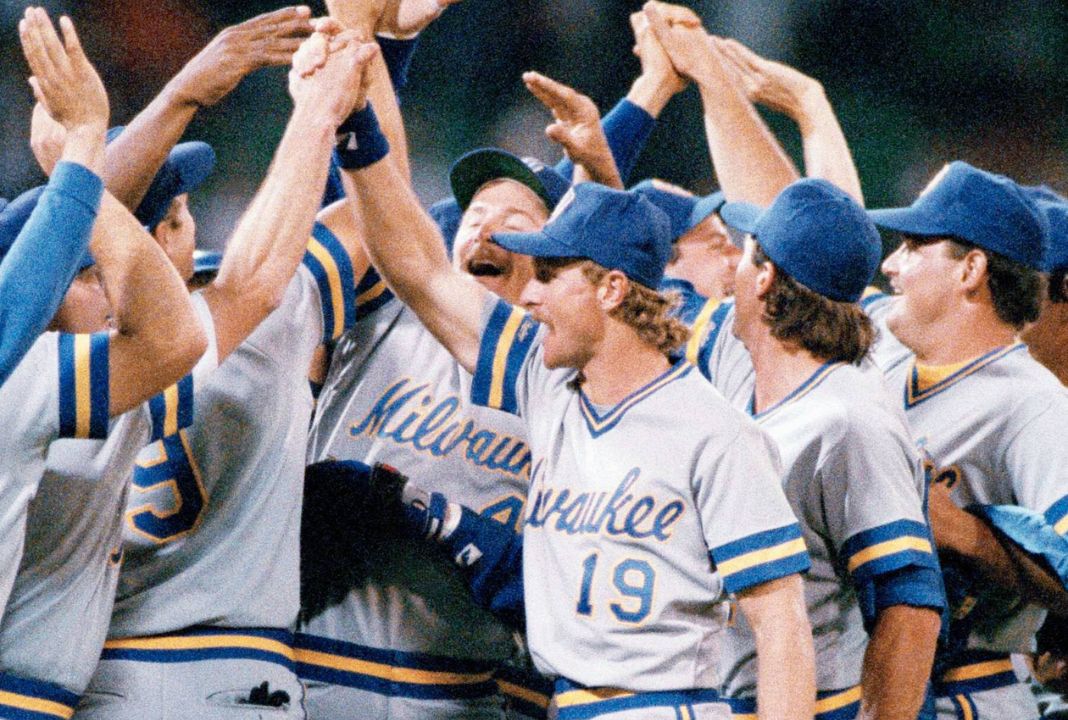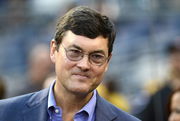
Imago
Image: MLB.com

Imago
Image: MLB.com
The 2025 season paints a fascinating picture of baseball’s competitive landscape. The Milwaukee Brewers surge to the top with MLB’s best record, while the defending World Series champion Dodgers entered as favorites to become the first team in franchise history to repeat. The Yankees, despite their massive payroll investment, find themselves in a heated playoff race. This stark contrast in performance versus spending ignites fresh debate over baseball’s economic structure.
Watch What’s Trending Now!
The numbers tell an interesting story about baseball’s financial divide. The 2025 MLB payrolls reveal a staggering gap: Los Angeles Dodgers lead at $340.5 million, New York Yankees follow at $297.8 million, while Milwaukee Brewers operate at just $113.1 million. That’s a $227 million difference between the Dodgers and Brewers – money that could fund two additional mid-market teams. Yet the Brewers’ success challenges every assumption about spending necessity in modern baseball.
The Brewers are a perfect case study for those who think baseball has a competitive balance problem.
“I’m not saying the economic system in the sport is perfect, what I’m saying is to suggest that the salary cap is the only answer is just simply absurd,” says @Ken_Rosenthal. pic.twitter.com/cH5C8mXuIg
— Foul Territory (@FoulTerritoryTV) August 15, 2025
ADVERTISEMENT
Ken Rosenthal delivered a passionate defense of baseball’s current system on Foul Territory X, directly addressing critics who claim the sport is broken. “The sport has not been broken at any point, and it was not broken when the Dodgers were loading and all these things were happening,” Rosenthal emphasized. He highlighted Milwaukee’s remarkable consistency: “Let’s talk about the Milwaukee Brewers. I just mentioned this will be their 7th playoff appearance in the past eight years if they get there. No, they haven’t won a World Series, but to me that’s not the measure; the measure is getting there.” Rosenthal’s argument centers on sustainability – small-market teams like Milwaukee prove competitive balance exists without artificial constraints.
Rosenthal exposes the salary cap myth with surgical precision, calling proposals “simply absurd.” His second argument cuts deeper: “The salary cap is not about competitive balance. What it’s about is the owners wanting cost restraints and cost certainty, and enhancing their franchise values.” He champions the Rays and Guardians as additional proof that David can still slay Goliath. “These teams are at a disadvantage,” Rosenthal acknowledges, “but to suggest the sport is broken… the sport is not broken.”
Rosenthal’s arguments directly counter Commissioner Rob Manfred’s ongoing salary cap campaign. Despite the veteran reporter’s compelling evidence, Manfred continues pushing cap implementation at ownership’s urging. Commissioner Manfred reports receiving emails from concerned fans following the Dodgers’ record spending spree, fueling his salary cap advocacy for the next collective bargaining agreement. However, Milwaukee’s sustained excellence while operating on one-third of the Dodgers’ budget provides powerful ammunition for cap opponents, proving smart management can compete with pure financial muscle.
ADVERTISEMENT
The Brewers aren’t just talking theory—they’re proving it on the field every night. Their latest performance perfectly demonstrates why the salary cap debate goes beyond simple economics.
ADVERTISEMENT
Brewers’ Hot Streak Shows Payroll Isn’t Everything
Milwaukee Brewers‘ theoretical arguments gained concrete validation Wednesday night as they dismantled Pittsburgh 12-5, stretching their red-hot winning streak to 12 consecutive games. This wasn’t just another victory—it represented everything Rosenthal champions about small-market success in today’s baseball landscape.
William Contreras orchestrated the offensive showcase with four RBIs, while Christian Yelich contributed three more in Milwaukee’s second straight explosive performance. The Brewers proved their depth by manufacturing runs without relying on home run power, collecting 12 hits with only two extra-base knocks.
Top Stories
Ross Atkins Told to Act Fast on Kyle Tucker as Latest Contract Projection Ignites New Buzz

Padres Plot Dodgers Revenge With ‘Second Yoshinobu Yamamoto’ Heist As Jed Hoyer Loses Grip, Per Insider

Kyle Tucker Throws Blue Jays Into Chaos as Ross Atkins Forced Into Harsh Job Cuts

3 Players David Stearns & Mets Must Go After To Solve Pete Alonso Void

Bob Nutting Moves to Bolster Paul Skenes as Pirates Circle $7.7M Red Sox Veteran, Per Insider


Imago
Image: MLB.com
Pittsburgh fought back through Bryan Reynolds, who launched two towering home runs off Brewers pitching. His three-run blast in the fifth inning got the Pirates on the scoreboard, followed by a two-run shot in the sixth that suddenly narrowed Milwaukee’s lead to 6-5.
ADVERTISEMENT
Milwaukee delivered the knockout punch in the sixth inning when Contreras stepped into the box with the bases loaded and crushed a game-sealing triple, sending the home crowd into complete frenzy. The moment perfectly encapsulated how smart roster construction and player development can triumph over pure payroll muscle—exactly what makes Manfred’s salary cap push so controversial.
The 2025 season narrative remains clear- Milwaukee’s $113 million roster leads baseball while the Dodgers’ $340 million investment chases them. Sometimes, baseball’s best stories aren’t written with the biggest checkbooks.
ADVERTISEMENT
ADVERTISEMENT
ADVERTISEMENT
ADVERTISEMENT

